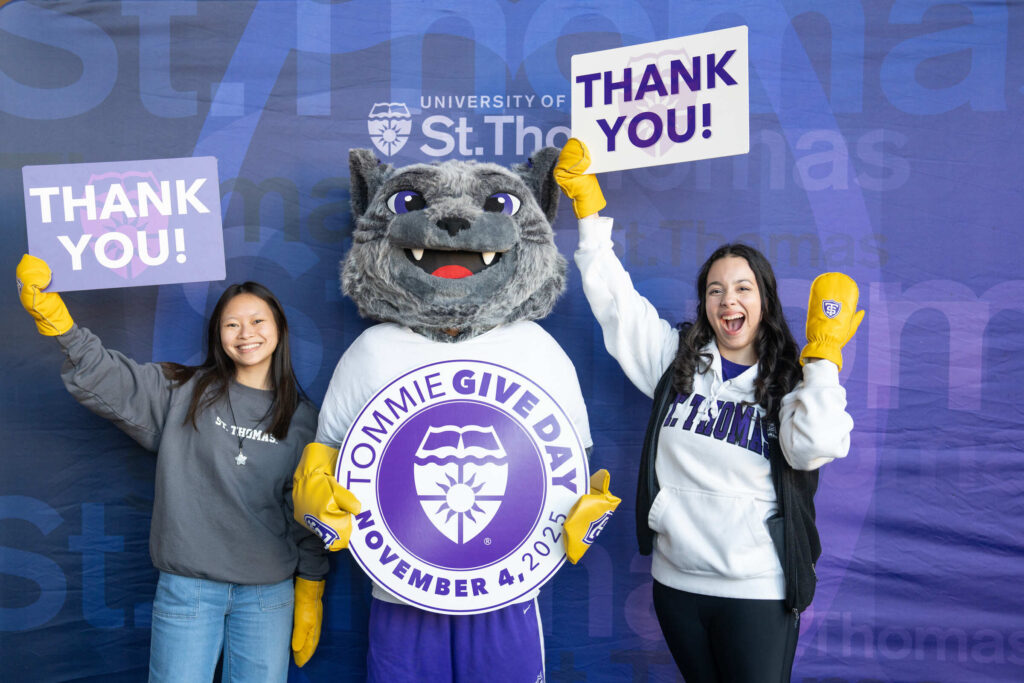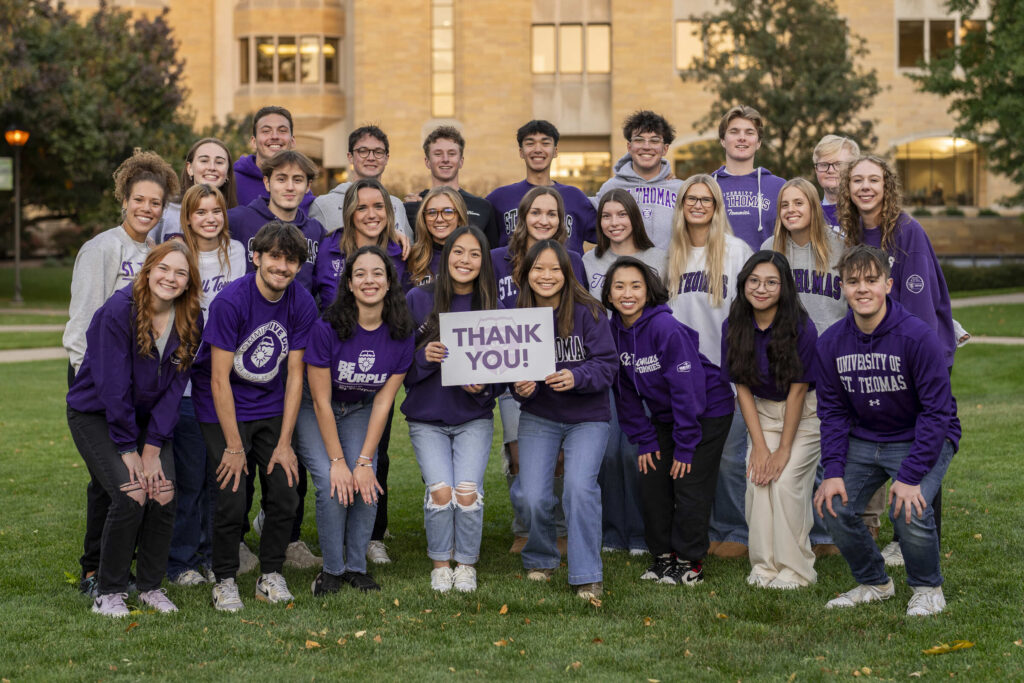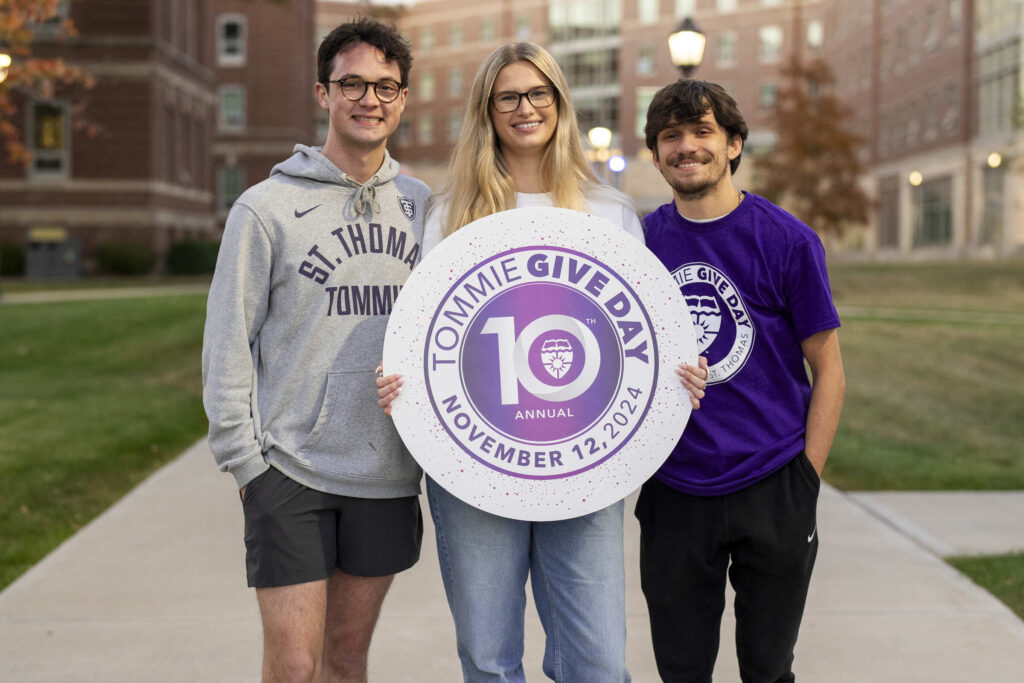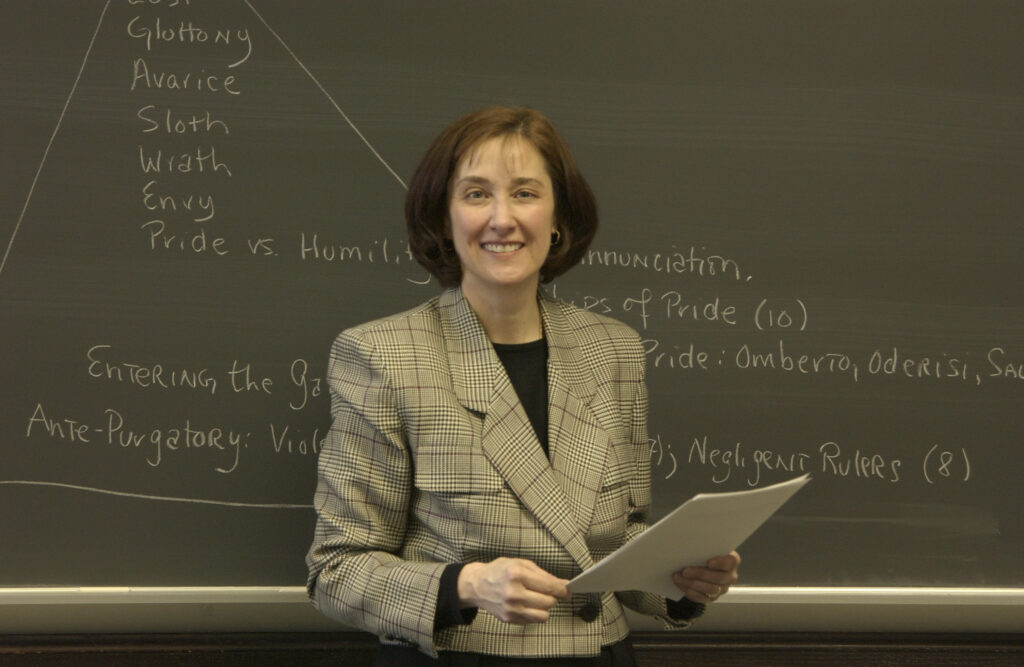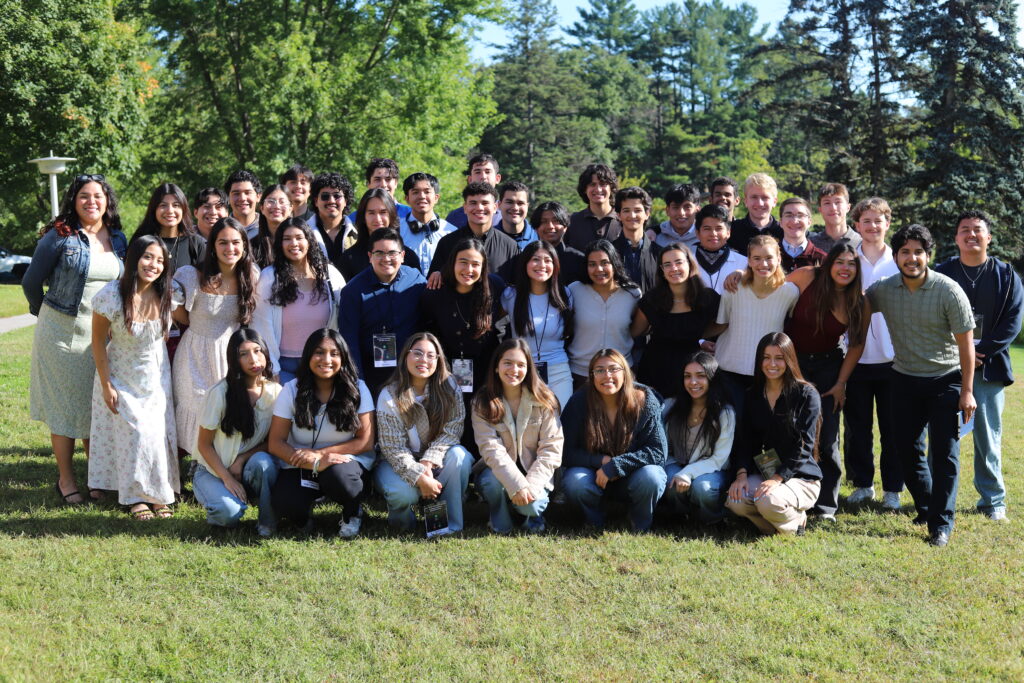The $1.5 million grant from the National Science Foundation will be used to provide financial support for low-income students interested in science fields.
The College of Arts and Sciences will establish the NSF Discovery Scholars program, designed to help disadvantaged students thrive at St. Thomas. The program will award scholarships to 23 students interested in biology, biochemistry, neuroscience, and computer science. Beyond scholarship assistance, St. Thomas will also form a new science-themed Living Learning Community open to a variety of students.
“The funding from this grant will positively impact our ability to recruit and retain low-income students interested in key scientific fields in CAS, furthering our mission to provide an outstanding liberal arts education to students with diverse backgrounds and perspectives,” said William ‘Bill’ Tolman, dean of the College of Arts and Sciences.
The first cohort of NSF Discovery Scholars will arrive on campus in the fall of 2023, with subsequent cohorts beginning their journeys in 2024 and 2025.
“We’ve learned a lot more about the kind of struggles that lower income students are more likely to have, in terms of supporting family with child care needs or working multiple jobs,” said Roxanne Prichard, grant co-writer and professor of neuroscience and psychology. “We wanted to get a grant to directly address those factors.”
In addition to financial assistance, scholars will benefit from a new partnership with the Minnesota Academy of Science, and a focus on student well-being and DEI practices.
“I just get really excited when I think about the ripple effects we’ll have for families and communities,” Prichard said. “Entire families can be impacted by having a student not only graduate college, but graduate in a science field with so many different options.”
The program will be designed to foster a community of science-minded individuals, providing networking and relationship-building opportunities. To do that, dozens of students – beyond the scholarship recipients themselves – will be encouraged to take part in the new learning community.
“We’ve been working with the first-year experience team to build it out,” said Melissa Loe, director of STEM inclusive excellence at St. Thomas, an associate professor of mathematics, and who will be directing the new NSF grant. “We want this to be helpful to as many students as we can.”
Part of the grant will also support paid research positions and campus jobs working directly with STEM faculty.
“The kind of on-campus learning that goes on in those positions has the potential to lead them into deeper waters in their majors and lead them down paths after graduation,” said Loe. “Often students who have responsibilities at home or off-campus jobs are not able to take advantage of these opportunities. We hope this program will give them the flexibility they need.”
Before the program even officially debuts, leaders are thinking about what comes next, hoping that this kind of work can be funded for many years to come.
“If we show that this is a great way to develop talent, maybe this is a model for a type of scholarship track that could go forward in the future,” Prichard said.

